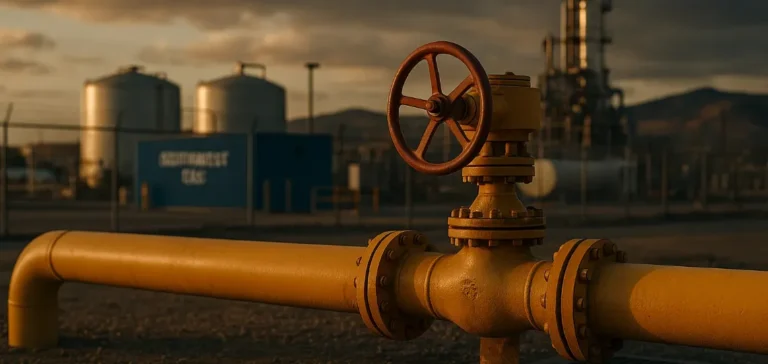Southwest Gas Corporation has submitted an agreement to the California Public Utilities Commission (CPUC) for the procurement of Renewable Natural Gas (RNG) for its customers in California. This initiative aims to comply with Senate Bill 1440 (SB 1440), which mandates that gas utilities procure biomethane to help reduce emissions of short-lived climate pollutants such as methane.
The agreement brings together Southwest Gas, Anew Climate LLC, and SoCal Biomethane LLC (SCB), a subsidiary of Anaergia Inc. It follows a competitive procurement process initiated by Southwest Gas. If approved, it would mark the first time that an operational biomethane production project is integrated under the SB 1440 framework in California.
Origin and Processing of the Biomethane
The biomethane in question is derived from an anaerobic co-digestion process involving slurried food waste and municipal wastewater sludge. The process is carried out at the Victor Valley Wastewater Reclamation Authority (VVWRA) site in San Bernardino County. The biogas produced is upgraded to pipeline-quality standards before being injected into the natural gas network.
The facility, operated by Anaergia, can process up to 65,000 gallons — approximately 246,000 liters — of slurried food waste per day, equating to nearly 104,000 metric tons of organic waste annually. The treated gas will be injected into Southwest Gas’ California infrastructure after purification.
Sectoral Impacts and Regulatory Compliance
The project could reduce annual greenhouse gas emissions by 11,841 metric tons of CO₂ equivalent (MTCO2e), which is comparable to the emissions from 2,762 gasoline-powered vehicles driven for one year. These figures are used in the regulatory assessment required under the SB 1440 program, which mandates traceability and measurable efficiency from alternative gas sources.
The California Public Utilities Commission plays a key role in validating project compliance with emission reduction goals, economic feasibility, and compatibility with existing gas infrastructure. The project is part of a broader strategy to incorporate energy solutions derived from waste recovery into the state’s energy mix.
Local Structuring and Industrial Positioning
This initiative strengthens the market presence of industry players involved in biomass-based gas production, including Anaergia and Anew Climate LLC. It leverages regional infrastructure, local expertise, and specialized treatment facilities. For Southwest Gas, the agreement contributes to supply diversification while meeting California’s regulatory obligations.
VVWRA also supports public outreach through site tours, local educational initiatives, and a Science, Technology, Engineering, and Mathematics (STEM) scholarship program. While independent from the gas supply agreement, these efforts contribute to the project’s regional integration and enhance the local framework for waste recovery and energy generation.






















